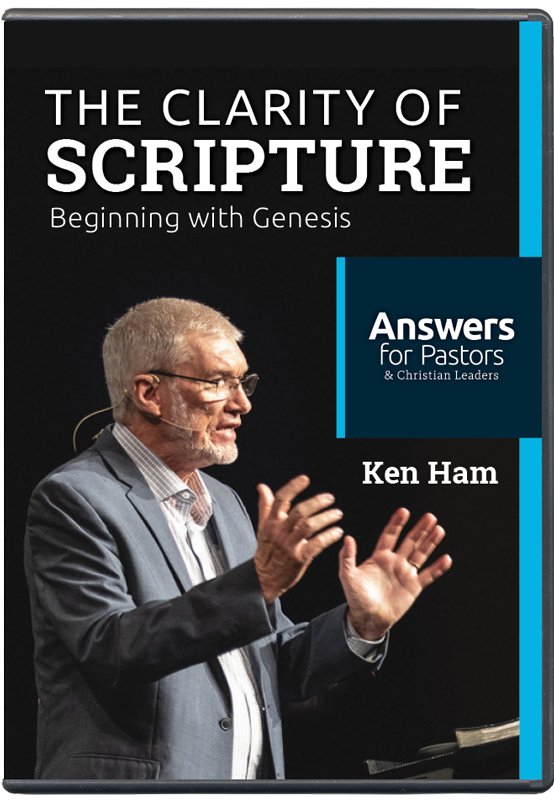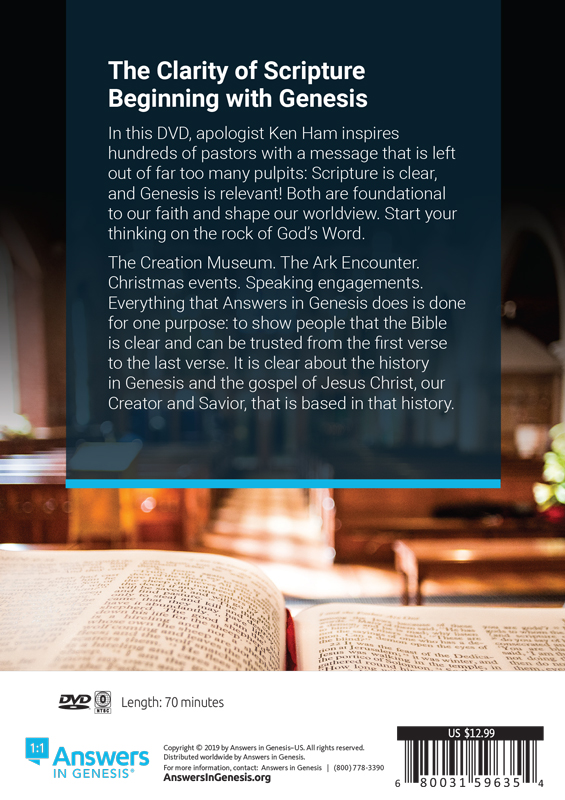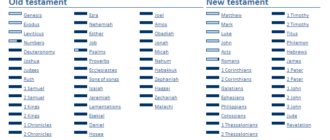
The Unwavering Clarity and Certainty of Scripture among the Swiss Reformers: A Comprehensive Analysis (Part I)
The Swiss Reformation, which took place in the 16th century, was a significant part of the broader Protestant Reformation. During this time, a group of reformers emerged in Switzerland who played a crucial role in shaping the theological landscape of the era. These reformers, including Huldrych Zwingli and John Calvin, sought to bring about a return to the pure and unadulterated teachings of Scripture.
One of the key principles emphasized by the Swiss reformers was the clarity of Scripture. They believed that the Bible, as the inspired Word of God, was accessible and understandable to all believers. This stood in contrast to the prevailing belief of the Catholic Church at the time, which held that Scripture could only be properly interpreted by the clergy.
The reformers argued that God had revealed Himself through His Word, and that it was the duty of every Christian to study and interpret Scripture for themselves. They believed that the Holy Spirit would guide believers in their understanding of the Bible, and that the truths contained within it were not hidden or mysterious, but rather clear and plain for all to see.
In addition to the clarity of Scripture, the Swiss reformers also emphasized the certainty of its teachings. They believed that the Bible provided a solid foundation for Christian faith and doctrine, and that it was the ultimate authority in matters of belief and practice. They rejected the authority of the Pope and the traditions of the Catholic Church, instead placing their trust in the infallible and unchanging Word of God.
By championing the clarity and certainty of Scripture, the Swiss reformers laid the groundwork for a new era of biblical interpretation and theological thought. Their teachings continue to influence and inspire Christians around the world today, reminding us of the importance of studying and understanding God’s Word for ourselves.
The Swiss Reformers’ Understanding of Scripture
The Swiss Reformers, as part of the larger Protestant Reformation movement, held a strong belief in the clarity and certainty of Scripture. They emphasized the importance of Scripture as the ultimate authority in matters of faith and practice, rejecting the authority of the Catholic Church and its tradition.
For the Swiss Reformers, Scripture was not to be interpreted solely by the clergy or the church hierarchy, but was accessible to all believers. They believed that the Bible was written in a clear and understandable manner, and that its message could be grasped by ordinary people through the guidance of the Holy Spirit.
Clarity of Scripture meant that its teachings were not hidden or obscure, but could be understood by diligent study and prayer. The Swiss Reformers encouraged the reading and study of Scripture by all believers, promoting literacy and the translation of the Bible into the vernacular languages.
Certainty of Scripture meant that its teachings were reliable and trustworthy. The Swiss Reformers believed that Scripture provided a sure foundation for faith and doctrine, and that it could be relied upon as a source of truth. They rejected the idea that the interpretations of the Catholic Church were infallible, and instead emphasized the need to compare all teachings and traditions with the clear teachings of Scripture.
Overall, the Swiss Reformers’ understanding of Scripture was characterized by a strong belief in its clarity and certainty. They saw Scripture as the ultimate authority in matters of faith and practice, and believed that its teachings were accessible to all believers. Their emphasis on the importance of Scripture laid the foundation for the development of the Reformed tradition in Switzerland and beyond.
The Authority of Scripture for the Swiss Reformers
The Swiss Reformers, including figures such as Ulrich Zwingli, John Calvin, and Heinrich Bullinger, placed a strong emphasis on the authority of scripture in their theological and ecclesiastical teachings. The reformers believed that scripture was the ultimate source of truth and guidance for the Christian faith, and they sought to base their beliefs and practices solely on the teachings of the Bible.
For the Swiss Reformers, scripture was seen as the Word of God, inspired by the Holy Spirit, and therefore carrying divine authority. They believed that scripture was clear and certain in its teachings, and that it could be understood by all believers, regardless of their education or social status. This emphasis on the clarity of scripture was a reaction against the Catholic Church, which had often claimed that the interpretation of scripture was reserved for the clergy and that the laity needed the Church’s guidance.
The Reformers also believed in the certainty of scripture, meaning that it provided reliable and unchanging truths that could be trusted in all matters of faith and practice. They rejected the idea that the Church had the authority to add or change doctrines, insisting instead that scripture alone should be the final authority. This belief in the certainty of scripture was closely tied to the reformers’ rejection of Catholic traditions and their desire to return to the pure teachings of the early Church.
To support their views on the authority, clarity, and certainty of scripture, the Swiss Reformers engaged in extensive biblical scholarship. They studied the original languages of the Bible, comparing different versions and consulting ancient manuscripts. They also developed systematic approaches to interpreting scripture, using methods such as historical and contextual analysis. The Reformers believed that through careful study and reliance on the Holy Spirit, the true meaning of scripture could be discerned.
In conclusion, the Swiss Reformers placed a high value on the authority of scripture in their theological and ecclesiastical teachings. They believed that scripture was clear and certain in its teachings, and that it provided reliable and unchanging truths for the Christian faith. Through their emphasis on the authority, clarity, and certainty of scripture, the Swiss Reformers sought to reform the Church and bring it back to its biblical foundations.
The Clarity of Scripture in the Swiss Reformation
The Clarity of Scripture played a crucial part in the Swiss Reformation, particularly among the Swiss reformers. They emphasized the importance of Scripture as the ultimate authority in matters of faith and practice.
During this period, there was a renewed focus on the study and interpretation of Scripture. The Swiss reformers believed that Scripture was clear and understandable to all believers, and that it did not require any special interpretation by a select few. They rejected the idea that only the clergy had the ability to understand and interpret Scripture.
The Swiss reformers also believed in the certainty of Scripture. They saw it as the unchanging and infallible Word of God, which provided a solid foundation for their theological beliefs. They believed that Scripture was not subject to human error or manipulation, and that it could be relied upon as a reliable guide for faith and practice.
As a result of their emphasis on the clarity and certainty of Scripture, the Swiss reformers encouraged the study and reading of Scripture by all believers. They believed that every Christian had the ability to understand and apply the teachings of Scripture to their own lives.
In conclusion, the Swiss reformers viewed Scripture with clarity and certainty, seeing it as the ultimate authority in matters of faith and practice. They believed that Scripture was clear and understandable to all believers, and that it provided a solid foundation for their theological beliefs. They encouraged the study and reading of Scripture by all believers, rejecting the idea that only the clergy had the ability to interpret it.
The Certainty of Scripture in the Swiss Reformation
The certainty of Scripture played a crucial part in the Swiss Reformation, as the reformers sought to establish a solid foundation for their beliefs and practices. The Swiss reformers, such as Huldrych Zwingli and John Calvin, emphasized the clarity and certainty of Scripture as the ultimate authority in matters of faith and doctrine.
They believed that the Bible, as the inspired Word of God, provided clear and unambiguous guidance for the Christian life. This belief in the certainty of Scripture guided the reformers in their efforts to purify the church and restore it to its biblical roots.
For the Swiss reformers, the clarity of Scripture meant that it could be understood by all believers, regardless of their education or social status. They rejected the idea that only the clergy had the authority to interpret the Bible, and instead encouraged all Christians to study and engage with the Scriptures for themselves.
In their writings and sermons, the Swiss reformers emphasized the importance of reading and meditating on the Word of God. They believed that through the study of Scripture, believers could gain a deeper understanding of God’s will and purpose for their lives.
The certainty of Scripture also provided a basis for the reformers’ teachings on salvation and the nature of God. They taught that salvation was by grace alone, through faith in Jesus Christ, and that the Bible clearly revealed God’s plan of redemption for humanity.
In conclusion, the certainty of Scripture was a foundational belief for the Swiss reformers, who saw it as the ultimate authority in matters of faith and practice. They emphasized the clarity of Scripture, encouraging all believers to study and engage with the Word of God for themselves. This belief in the certainty of Scripture guided their teachings on salvation and the nature of God, and played a crucial part in the Swiss Reformation.
The Role of Scripture in the Swiss Reformation
The Swiss Reformation, also known as the Swiss part of the Protestant Reformation, was a significant movement in the 16th century that aimed to reform the Catholic Church in Switzerland. One of the key aspects of this reform was the role of Scripture, which played a crucial part in shaping the beliefs and practices of the Swiss Reformers.
The Swiss Reformers, such as Huldrych Zwingli and John Calvin, emphasized the clarity and certainty of Scripture as the ultimate authority in matters of faith and doctrine. They believed that the Bible, as the inspired Word of God, provided the necessary guidance and instruction for the Church and its members.
In their efforts to bring about reform, the Swiss Reformers placed a strong emphasis on the study and interpretation of Scripture. They encouraged the people to read the Bible for themselves and to rely on its teachings rather than the traditions and teachings of the Catholic Church.
The Reformers also sought to make Scripture more accessible to the people. They translated the Bible into the vernacular languages, such as German and French, so that it could be read and understood by the common people. This allowed individuals to engage directly with the Word of God and to form their own understanding of its message.
Furthermore, the Swiss Reformers used Scripture as a basis for their theological arguments and reforms. They believed that the teachings and practices of the Catholic Church needed to be reformed in light of the clear teachings of Scripture. They sought to align the Church with what they believed to be the true teachings of the Bible.
In conclusion, the role of Scripture was central to the Swiss Reformation. It served as the foundation for the beliefs and practices of the Swiss Reformers, and played a crucial part in shaping the course of the Reformation in Switzerland.
The Use of Scripture in Preaching during the Swiss Reformation
During the Swiss Reformation, the reformers placed a strong emphasis on the use of scripture in their preaching. They believed that scripture was the ultimate authority and source of truth, and they sought to make it accessible to the common people. The reformers recognized the importance of clarity in scripture, and they strived to communicate its teachings in a way that was understandable and relatable to their audience.
One of the key aspects of the reformers’ approach to preaching was their commitment to the accurate interpretation of scripture. They recognized that scripture could be misinterpreted or manipulated to support various theological positions, and they sought to avoid such pitfalls. The reformers studied scripture diligently, comparing different passages and seeking to understand the original intent of the biblical authors. They also emphasized the importance of using scripture to interpret scripture, relying on the internal consistency and coherence of the biblical text.
The reformers also used scripture to challenge the established religious authorities and traditions of their time. They believed that many of the practices and teachings of the Catholic Church were not supported by scripture, and they sought to reform the church based on biblical principles. In their preaching, the reformers would often cite specific passages of scripture to support their arguments and demonstrate the scriptural basis for their beliefs and practices.
Furthermore, the reformers recognized the need for personal application of scripture in the lives of their listeners. They believed that scripture was not merely an intellectual exercise, but a guide for practical living. In their preaching, they would often exhort their audience to apply the teachings of scripture to their own lives, urging them to live in accordance with God’s word.
In conclusion, the use of scripture in preaching was a central part of the Swiss Reformation. The reformers emphasized the clarity and certainty of scripture, and they sought to make its teachings accessible to all. They approached scripture with a commitment to accurate interpretation, used it to challenge established authorities, and urged personal application of its teachings. Through their preaching, the reformers played a crucial role in shaping the religious landscape of Switzerland and beyond.
The Role of Scripture in Worship during the Swiss Reformation
During the Swiss Reformation, the role of scripture in worship played a pivotal part in shaping the beliefs and practices of the reformers. The Swiss reformers, including Zwingli and Calvin, emphasized the importance of scripture as the ultimate authority in matters of faith and worship.
The clarity of scripture was a central tenet of the Swiss Reformation. The reformers believed that the Bible was clear and understandable to all believers, and they sought to make it accessible to the common people. They translated the scriptures into the vernacular languages, such as German and French, so that everyone could read and understand God’s word.
Scripture was not only read and studied in private, but it also had a prominent role in public worship. The reformers believed that the Word of God should be central in the worship service, and they structured their worship around the reading and preaching of scripture. They saw scripture as a means of grace, through which God speaks to His people and transforms their lives.
In worship, scripture was read aloud in the language of the people. The reformers emphasized the importance of the congregation hearing and understanding the Word of God for themselves. They also encouraged the memorization of scripture, so that believers could meditate on God’s word throughout the week and apply it to their lives.

The Swiss reformers also introduced congregational singing of scripture in worship. They believed that singing scripture helped to internalize the word of God and engage the hearts and minds of the worshippers. They composed hymns and psalms based on scripture, and these were sung by the congregation as a form of worship and praise.
The role of scripture in worship during the Swiss Reformation was foundational to the reformers’ understanding of faith and practice. They believed that scripture should inform and guide every aspect of worship, and they sought to create a worship experience that was centered on the Word of God. This emphasis on scripture in worship continues to shape Protestant worship practices to this day.
The Importance of Scripture in Theological Education during the Swiss Reformation
The Swiss Reformation, led by prominent reformers such as Zwingli and Calvin, emphasized the importance of Scripture in theological education. The reformers recognized that a strong foundation in the study and interpretation of Scripture was essential for the development of sound theological understanding.
During this period, the Swiss reformers placed a high value on the clarity and certainty of Scripture. They believed that the Bible was the ultimate authority in matters of faith and practice, and that it should be studied and taught with diligence and reverence.
In theological education, the Swiss reformers emphasized the need for students to engage directly with the text of Scripture. They encouraged students to read, analyze, and interpret the Bible for themselves, rather than relying solely on the teachings of others. This approach fostered a sense of personal responsibility and ownership in theological learning.
The reformers also recognized the importance of teaching students the skills necessary for effectively studying and interpreting Scripture. They emphasized the need for a solid understanding of the original languages, as well as the historical and cultural context in which the biblical texts were written. This enabled students to engage with the text in a more meaningful and accurate way.
Furthermore, the Swiss reformers believed that theological education should not be limited to the academic realm. They saw the study of Scripture as a means of personal transformation and spiritual growth. They encouraged students to apply the teachings of Scripture to their own lives and to cultivate a deep personal relationship with God.
In conclusion, the Swiss reformers recognized the importance of Scripture in theological education during the Reformation. They emphasized the clarity and certainty of Scripture and encouraged students to engage directly with the text. They also recognized the need for a solid foundation in the study and interpretation of Scripture and saw the study of Scripture as a means of personal transformation. The reformers’ emphasis on Scripture continues to be influential in theological education today.
The Impact of Scripture on the Swiss Reformation
The Swiss Reformation, led by reformers such as Ulrich Zwingli and John Calvin, was greatly influenced by the clarity and certainty of Scripture. These reformers believed that the Bible was the ultimate authority in matters of faith and practice, and they sought to base their teachings and reforms on the teachings of Scripture.
The Swiss reformers emphasized the importance of studying and understanding Scripture for oneself. They believed that every individual had the right to read and interpret the Bible, and they encouraged the laity to engage with the text directly. This emphasis on personal study of Scripture led to a widespread dissemination of the Bible, as the reformers worked to translate the Bible into the vernacular languages of the Swiss people.
The clarity and certainty of Scripture also played a crucial role in the theological debates and reforms of the Swiss Reformation. The reformers sought to clarify and correct what they saw as the errors and corruptions of the Roman Catholic Church, and they turned to Scripture as their guide. They believed that Scripture provided clear and certain answers to theological questions, and they used it to challenge and critique the teachings and practices of the Catholic Church.
Furthermore, the reformers’ emphasis on the clarity and certainty of Scripture led to a focus on preaching and teaching the Word of God. They believed that the Bible should be central to worship and that sermons should be based on the text of Scripture. This emphasis on preaching and teaching the Bible helped to spread the ideas and reforms of the Swiss Reformation to a wider audience.
In conclusion, the impact of Scripture on the Swiss Reformation was profound. The reformers’ belief in the clarity and certainty of Scripture shaped their theology, their approach to reform, and their methods of spreading their message. The Bible was not only their ultimate authority, but also their guide and inspiration in their efforts to bring about change in the church and society.
The Influence of Scripture on the Swiss Reformers’ Theology
The Swiss Reformers’ theology was deeply rooted in their understanding and interpretation of scripture. They believed that scripture, as the inspired and authoritative word of God, held the ultimate truth and provided the foundation for their theological beliefs and teachings.
For the Swiss Reformers, scripture was not just a historical document or a collection of moral teachings, but a living and active guide for their faith and practice. They saw it as the primary source of knowledge about God, salvation, and the Christian life, and sought to base their beliefs and practices on its teachings.
In their quest for theological clarity and certainty, the Swiss Reformers studied scripture diligently and sought to understand its meaning in its original context. They engaged in rigorous exegesis and hermeneutics, using tools such as language study, historical research, and comparative analysis to interpret scripture accurately.
The certainty they found in scripture gave them confidence in their theological convictions, even in the face of opposition and controversy. They believed that scripture was clear and self-interpreting, and that its teachings were accessible to all believers, not just to a select few. This belief led them to emphasize the importance of scripture in the life of the individual believer, encouraging personal study and reflection.
The Swiss Reformers’ theology was shaped by their understanding of scripture as the ultimate authority in matters of faith and practice. They saw scripture as the final arbiter in theological debates and sought to align their beliefs and practices with its teachings. This emphasis on scripture as the foundation of their theology set them apart from other theological traditions of their time and continues to be a defining characteristic of Swiss Reformed theology.
The Effect of Scripture on the Swiss Reformers’ Ecclesiology
The Swiss Reformers, influenced by the clarity and certainty of Scripture, developed a distinctive ecclesiology that emphasized the authority of the Bible in matters of faith and practice. Their study of Scripture led them to question and challenge traditional practices and teachings of the Catholic Church, ultimately leading to the formation of independent Reformed churches.
By carefully examining the teachings of Scripture, the Swiss Reformers sought to align their ecclesiology with the biblical model of the early Christian church. They believed that the Bible provided clear instructions for the organization and governance of the church, and they rejected the hierarchical structure and authority of the Catholic Church.
The clarity and certainty of Scripture played a crucial role in shaping the Swiss Reformers’ understanding of the church. They believed that the Bible was the inspired and infallible Word of God, and that it contained all that was necessary for salvation and the guidance of the church. This conviction led them to prioritize the study and interpretation of Scripture in their ecclesiology.
The Swiss Reformers also emphasized the priesthood of all believers, rejecting the notion that only ordained clergy had authority in the church. They believed that every Christian had the right and responsibility to read and interpret Scripture for themselves, and that the Holy Spirit would guide them in understanding its meaning.
This emphasis on the authority of Scripture and the priesthood of all believers led to the development of congregational polity, where decisions were made collectively by the members of the church. The Swiss Reformers believed that this model of church governance was more faithful to the teachings of Scripture and allowed for greater participation and accountability within the church.
- Overall, the effect of Scripture on the Swiss Reformers’ ecclesiology was profound. Their study and interpretation of the Bible led them to challenge traditional practices and teachings, and to develop a more biblically-based understanding of the church.
- Their emphasis on the authority of Scripture and the priesthood of all believers shaped their ecclesiology and led to the formation of independent Reformed churches.
- By prioritizing the study and interpretation of Scripture, the Swiss Reformers sought to align their ecclesiology with the biblical model of the early Christian church.
- They believed that the Bible provided clear instructions for the organization and governance of the church, and rejected the hierarchical structure and authority of the Catholic Church.
- This emphasis on the authority of Scripture and the priesthood of all believers led to the development of congregational polity, where decisions were made collectively by the members of the church.
The Role of Scripture in the Swiss Reformers’ Social Ethics
The Swiss Reformers, as part of the larger Protestant Reformation, placed a strong emphasis on the authority and clarity of Scripture in shaping their social ethics. They believed that the Bible was the ultimate source of truth and guidance for all aspects of life, including social and ethical issues.
By studying and interpreting the Scriptures, the Swiss Reformers sought to understand God’s will and apply it to the social challenges of their time. They believed that Scripture provided clear and certain teachings on how individuals should live in society, how governments should be structured, and how justice and mercy should be administered.
The Swiss Reformers believed that Scripture was not only relevant to personal salvation, but also to the transformation of society. They saw social ethics as an integral part of the Christian life and believed that the teachings of Scripture should guide individuals and communities in their interactions with one another.
Scripture provided the Swiss Reformers with a solid foundation for their social ethics. They believed that the Bible contained timeless principles that were applicable to their contemporary context. They saw the Scriptures as a moral compass that could guide them in navigating the complex social and ethical issues of their time.
Overall, the Swiss Reformers viewed Scripture as the ultimate authority and source of clarity in shaping their social ethics. They believed that by studying and applying the teachings of Scripture, they could create a more just and compassionate society that reflected the values of the Kingdom of God.
The Reception of Scripture among the Swiss Reformers
The Swiss reformers played a crucial role in the reception of Scripture during the Reformation. They sought to bring clarity and certainty to the interpretation and understanding of the Bible.
The reformers emphasized the authority of Scripture as the ultimate source of truth and guidance for the Christian faith. They believed that the Word of God should be accessible to all believers, not just the clergy. This led to the translation of the Bible into the vernacular languages, such as German and French, so that people could read and understand it for themselves.
Furthermore, the Swiss reformers were committed to a rigorous study of Scripture. They engaged in exegetical analysis, seeking to understand the original meaning and context of the biblical texts. They also utilized commentaries and theological works to deepen their understanding of the Word of God.
The reformers also emphasized the importance of preaching based on Scripture. They believed that the Word of God should be proclaimed clearly and faithfully to the congregation. This led to the development of sermons that were grounded in the biblical text and focused on its application to the lives of the listeners.
The reception of Scripture among the Swiss reformers was not without challenges. They faced opposition from the Catholic Church, which held a different view of the authority and interpretation of Scripture. However, the reformers remained steadfast in their commitment to the clarity and certainty of Scripture, and their efforts had a significant impact on the spread of the Reformation throughout Switzerland and beyond.
The Swiss Reformers’ Approach to Scriptural Interpretation
The Swiss Reformers, in their pursuit of clarity and certainty in understanding scripture, developed a unique approach to interpret the Word of God. This approach, which was influenced by the teachings of key figures such as Zwingli and Calvin, aimed to establish a solid foundation for theological beliefs and practices.
One of the central principles of the Swiss Reformers’ approach was the belief in the clarity of scripture. They held that the Bible, as the inspired Word of God, was accessible and understandable to all believers. This conviction led them to emphasize the importance of reading and studying scripture directly, rather than relying solely on the interpretations of the clergy or tradition.
Furthermore, the Swiss Reformers sought certainty in their interpretation of scripture by employing a systematic and rigorous method. They believed that the Bible should be interpreted in light of its own context, taking into account the historical, cultural, and linguistic aspects of the text. This approach aimed to uncover the original meaning intended by the biblical authors, as well as the timeless truths that could be applied to contemporary situations.
To aid in their interpretation, the Swiss Reformers also utilized the principle of scriptural harmony. They believed that scripture was consistent and coherent, with no contradictions or discrepancies. Therefore, when faced with apparent conflicts within the text, they sought to reconcile them through careful analysis and comparison of different passages.
In conclusion, the Swiss Reformers’ approach to scriptural interpretation was characterized by a commitment to clarity and certainty. They emphasized the accessibility of scripture to all believers and advocated for a systematic and contextual understanding of the text. By employing these principles, they sought to establish a solid foundation for their theological beliefs and practices.
The Swiss Reformers’ Attitude towards Tradition and Scripture
The Swiss Reformers, including Zwingli, Bullinger, and Calvin, held a firm belief in the clarity and certainty of Scripture. They emphasized the importance of Scripture as the ultimate authority in matters of faith and doctrine. They rejected the idea that tradition should hold equal or greater authority than Scripture. Instead, they sought to return to the original teachings of the early Christian church, as found in the Bible.
The reformers believed that Scripture was clear and understandable to all believers, not just to a select few. They emphasized the need for every individual to have access to the Scriptures in their own language, so that they could read and interpret it for themselves. They believed that the Holy Spirit would guide and illuminate the understanding of those who sincerely sought to know the truth of God’s Word.
The Swiss reformers also rejected the idea that tradition could add to or modify the teachings of Scripture. They saw tradition as something that had developed over time, influenced by human ideas and practices, and not necessarily in line with the teachin





